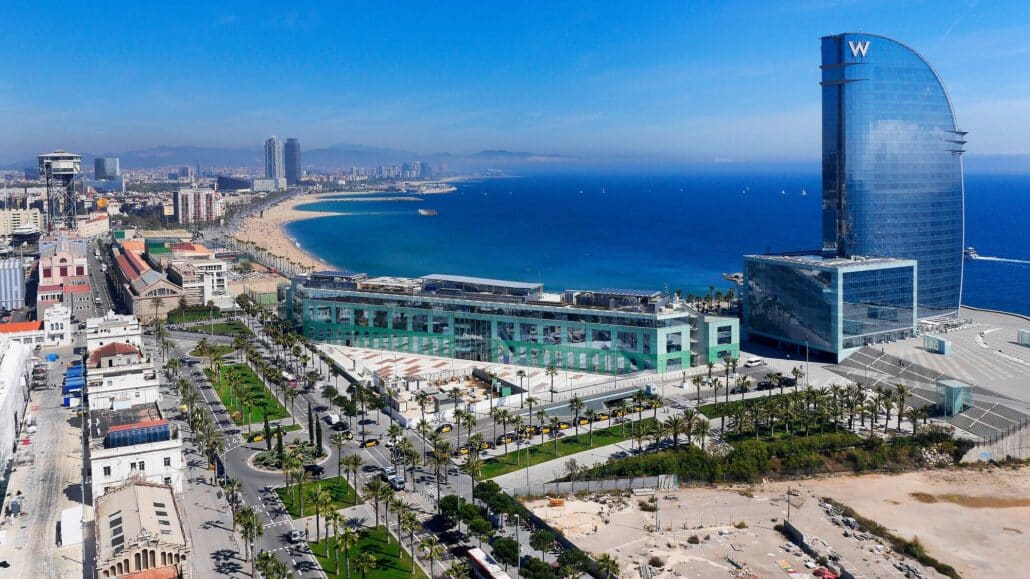Modification of tax ordinances: impact on tourism and sustainability
The Plenary of the Barcelona City Council has provisionally approved a draft of Tax Ordinances for 2025, with the aim of increasing tourism taxation and adapting the regulations to the city’s sustainability challenges. The proposal was backed by the municipal government together with Barcelona en Comú and Esquerra Republicana, and now opens a period of public information before its final approval in December. The new regulation seeks to freeze taxes for citizens and apply higher tax burdens in highly profitable sectors such as tourism and leisure.

Panoramic view of the coast
New IBI rates for hotels and special properties
One of the most notable changes is the increase in IBI on leisure and hospitality properties with the highest cadastral value, where a differential rate of 1.08% is planned for the 233 most valuable properties, including 208 hotels. In addition, the City Council plans a progressive increase in IBI for properties with special characteristics, such as the Port of Barcelona and cruise terminals, which will see their tax rate rise from the current 0.80% to 1.30% in 2027. This adjustment will bring the city in line with other port cities and strengthen the tax contribution of key sectors in tourism.
Zona Bus 4.0: a system to regulate tourist mobility
Within the new Bus Zone 4.0 Project, a mandatory daily fee is introduced for tourist buses in high traffic areas, with the aim of limiting the impact of these vehicles in the city center. The daily rate will increase from 20 to 80 euros, and a prior reservation will be required for stops at specific high-demand locations, with an additional cost per encotxe and desencotxe operation. The regulation of tourist buses seeks to decongest the center of Barcelona and redistribute traffic to intermodal access points on the outskirts of the city.
Adjustment in the waste tax and environmental bonuses
The proposal also includes an adjustment in the municipal waste fee to adapt it to the new legal framework requiring 100% coverage of service costs, increasing the annual fee in the range of 5 to 10 euros for most households by 2025. Environmental bonuses will be optimized, reducing to 50% the bonus on regulated parking for “zero emissions” vehicles and limiting to five years the environmental bonuses for the IVTM, in order to incentivize an orderly transition to more sustainable technologies.
Investment attraction and innovation support
With the aim of attracting innovative and technological companies, the City Council proposes IAE bonuses for companies that invest in fixed assets or establish innovation centers in Barcelona. The rebates can reach up to 95% for investments over 5 million euros or in cases of generation of more than 150 quality jobs, positioning Barcelona as an attractive destination for investment in technology and high value-added employment.
A project under discussion
This package of tax measures, which the City Council will debate on October 16 in the Economy and Finance Committee, has an estimated impact of 22.6 million euros in additional revenue by 2025. The proposal reflects a clear commitment to balancing tourism taxation and advancing sustainability, without burdening families and small businesses with additional taxes.



